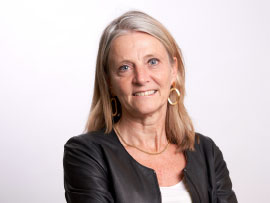EasyJet plc
 | |
| Founded | 1995 by Sir Stelios Haji-Ioannou |
|---|---|
| Operating bases | |
| Frequent-flyer program | Flight Club |
| Subsidiaries | EasyJet UK EasyJet Europe EasyJet Switzerland (40%) EasyJet Holidays |
| Fleet size | 326[1] |
| Parent company | EasyGroup (33.73%)[2] |
| Traded as | |
| Headquarters | Hangar 89, London Luton Airport, Luton, England, UK |
| Key people | |
| Revenue | |
| Operating income | |
| Net income | |
| Employees | 13,000 (2023)[4] |
| Website | Template:EditAtWikidata |
easyJet plc operates as an airline carrier primarily in Europe. It also leases aircrafts, as well as operates tours; and provides financing services. As of September 31, 2021, the company operated 927 routes with approximately 308 aircrafts in 34 countries; and 153 airports. It sells seats through its own website www.easyjet.com and its easyJet Worldwide' platform, its mobile application, global distribution systems, corporate online booking tools, content aggregators, and tour operator. easyJet plc was founded in 1995 and is headquartered in Luton, the United Kingdom.
Operations edit edit source
How did the idea of the company come about? edit edit source
EasyJet originated from its founder Stelios Haji-loannou who became interested in the idea of establishing an airline after initially being approached by Virgin Atlantic as a potential investor. Stelios particularly liked the business model of adapting prices to make air travel competitive with more traditional methods of transport such as buses. He believed this would welcome many more customers that usually didn't choose to fly.[5]
Stelios then went to on to set up EasyJet in 1995, employing 70 people. Stelios also established the easyJet headquarters known as easyLand built at Luton airport who offered Stelios a 15,000 square feet building to help the new company. Initially easyJet flew just two routes from Luton to Edinburgh and to Glasgow, supported by the advertising campaign "Making flying as affordable as a pair of jeans - £29 one way".[6]
The first international flight came in April 1996 when easyJet started the route to Amsterdam, competing with British Airways and KLM. These two competitors had different responses to the emergent company with BA sticking to their strategy whereas KLM allegedly responded with a "predatory pricing strategy" which led to the EU investigating.[5]
What's the mission of the company? edit edit source
EasyJet's strategy is to make low-cost travel easy. The mission is to build on easyJet's "structural advantages" in the European aviation market, helping easyJet move closer towards its destination of being Europe's most loved airline. [7]
Key elements of easyJet's mission include:
- Building Europe's best network: easyJet's ambition is to build the best network in Europe. To do this, they will continue to lead in their core markets, building scale in Europe’s largest and most attractive travel markets. This will offer customers choice in terms of destination and schedule and will ensure highly efficient operations. In many cases, easyJet’s core markets are slot-constrained and we will continue to grow in these markets by building the slot portfolio as opportunities arise and through up-gauging as the average seats per aircraft increases in coming years. In addition easyJet will continue to build out their destination bases in top leisure locations. [8]
- Transforming revenue: easyJet has delivered exceptional revenue performance, especially in the ancillary revenue area. Continuing to develop and build in this area is a key priority in delivering the strategy, ensuring that they are able to maximise the revenue potential of the market. To deliver on this priority easyJet will continue to invest in its strong revenue management capability, ensuring that its market-leading position is maintained by developing new industry-leading capabilities which creatively leverage new sources of data and optimise ticket and ancillary revenue together. Additionally, they will continue to invest in diversifying our sources of revenue with an ongoing focus on easyJet holidays.[8]
- Delivering ease and reliability: To deliver ease and reliability, easyjet will continue to build on their areas of strength, in particular the digital booking and on-the-day experience and exceptional onboard service. This will be supported by investments in other key areas of the customer journey, in particular the airport experience, and continuing to improve On-Time Performance and reduce cancellation rates. They gauge this mission through KPIs such as Customer satisfaction (%) and On-Time Performance (%). Sustainability continues to be a priority for easyJet and its customers. The net zero roadmap recently launched demonstrates their commitment to leading in an area which is likely to be a key purchase driver in the future.[8] Their KPI to measure sustainability is CO2 emissions per passenger kilometre (g).
- Driving a low-cost model: a highly efficient point-to-point network to deliver simplicity in operations and scale within airports. Providing disaggregated products and relevant bundles of products, allowing customers to pay for what they value. Ensuring they have a fleet with exceptional fuel efficiency and low maintenance costs. And most importantly, it means always challenging cost, ensuring that where easyJet spends it delivers tangible value to our customers. [8]
What are the main offerings of the company? edit edit source

The main service easyJet provides is flights all across Europe and North Africa. Easyjet provides a number of different fares to try and accomodate to everyone's needs and desires, these include:
- Standard fares: includes the flight and an allowance for a small cabin bag. The customer can then decide if they would like anything else such as a seat reservation or more baggage but this comes with added fees.
- FLEXI fares: includes a large cabin bag, a hold bag, a 'Up Front' seat, on board meal deal, fast track and speedy boarding. In addition this fare offers free flight and route changes within 1 day either side of the booked day, with some restrictions applied. FLEXI customers are also entitled to the Gateway lounge in Gatwick North Terminal.
- EasyJet Plus: offers members Plus Bag Drop, no fee for choosing the seat, an additional cabin bag, fast track security and Speedy Boarding.
- Flight club: this is an invite only club for easyJet's most frequent travellers. The benefits include fee-free changes, a price guarantee (compared to other airline's fees), a price promise (if price ever decreases after booking a voucher worth the difference will be issued) and a preview of schedule seat releases and sales to let the mmembers know early what's coming up.
EasyJet also has a holiday business, called easyJet holidays, aimed at shaking up the sector with flexible, great-value holidays to handpicked hotels across Europe. UK customers can book Europe’s most loved hotels, together with any easyJet flight, on one platform. This will help to reduce the seven hours holidaymakers spend on average searching for a holiday, according to research by the new holiday company.
EasyJet holidays customers will benefit from ultimate flexibility and can choose exactly how many nights they wish to stay thanks to the strength of the easyJet fleet and its flying schedule. EasyJet holidays is directly contracting hotels for the first time, giving holidaymakers the choice of staying at handpicked hotels. The range of high-quality hotels has been carefully selected by experts, with bespoke collections carefully designed to suit every holiday type.[9]
Impact of COVID-19 and Recovery Process edit edit source
During the COVID-19 pandemic, EasyJet, like many other airlines, faced significant challenges. The company reported a full-year loss of £1.3 billion, marking the first annual loss in its 25-year history. The pandemic led to a sharp decline in air travel demand, and the airline was forced to cut back on its flights. However, the announcement of positive news on COVID-19 vaccines, particularly from Pfizer and BioNTech, had a notable impact on the company's bookings. Sales surged by 50% in a week following the vaccine news.
The airline responded to the reduced demand and travel restrictions by cutting around 20% of its planned winter schedule. Despite the challenges, EasyJet's CEO, Johan Lundgren, remained optimistic about the future, citing that the longer travel restrictions were in place, the more pent-up demand was building. The positive outlook was further bolstered by holiday bookings for summer 2021, which were significantly ahead of previous years, albeit driven partly by customers who had rebooked using vouchers from cancelled flights in 2020.
Lundgren also acknowledged that short-haul and leisure routes, which formed the core of EasyJet's network, were expected to recover more quickly compared to long-haul and business travel. The airline aimed to open seasonal bases in Málaga and Faro for the upcoming summer season, indicating confidence in the recovery potential.
While the company faced financial losses, it took measures to improve its liquidity. EasyJet raised £3.1 billion in cash between April and November 2020 through various means, including the sale and leaseback of aircraft and deferring the delivery of new planes. However, cost-cutting measures also resulted in a significant number of redundancies, affecting up to 4,500 employees.[10]
More recently, EasyJet indicated signs of recovery as bookings for peak periods, such as Christmas, the ski season, and other holidays, returned to pre-pandemic levels. The airline dramatically reduced its full-year loss to £178 million, showing a significant improvement from the previous year. EasyJet's CEO, Johan Lundgren, noted strong demand during peak periods and cited a survey indicating that three-quarters of people were interested in traveling next year, despite the cost-of-living crisis.
The company also implemented measures to cope with rising costs, including increasing ticket prices as jet fuel and other expenses rose. Despite these increases, half of all tickets sold until the following September were expected to cost less than £50, aligning with EasyJet's reputation for offering value to customers. Destinations in the eastern Mediterranean, such as Turkey, Egypt, and Greece, were particularly popular among travellers.
While the airline witnessed strong demand during peak periods, it acknowledged that stimulating demand during quieter times remained a challenge. However, EasyJet expected to fully return to 2019 capacity levels by the summer of 2023, indicating a positive outlook for the recovery.
To address staff shortages and avoid travel disruptions, EasyJet began early recruitment for the next summer season and received a remarkable response with 19,000 applications for 2,000 jobs. The company also engaged in conversations with contractors and the government to ensure labour availability for the aviation sector.
In summary, EasyJet faced substantial losses due to the COVID-19 pandemic, but the news of effective vaccines resulted in a surge in bookings. The airline implemented various measures to manage its finances, including raising cash and reducing costs. With bookings for peak periods returning to pre-pandemic levels and an optimistic outlook for the next summer season, EasyJet appears to be on a path of recovery, although challenges related to stimulating demand during quieter times and managing rising costs persist.[11]
Sustainability
Aviation accounts for 2.5% of global CO2 emissions according to a report by 'Our World In Data' (2020). Planes emit CO2 from burning fuels. On top of CO2, aircraft engines emit other gases – nitrous oxides (NOx), sulfur dioxide (SO2) and water (H2O) – and particulate matter (soot). When emitted at high altitudes, these emissions affect atmospheric physical and chemical properties (source-Transport and Environment). If looked at distance/consumption, the most fuel is consumed during take-off and climbing. Also the higher the flight range, the higher the share of fuel consumed while cruising. EasyJet's main focus is on short-haul flights (low range), which might lead to lower fuel consumption while cruising. However, due to frequent takeoffs and landings on short-haul routes, the distance/consumption ratio is affected as these phases significantly contribute to fuel usage. Sustainability in aviation could be achieved through improvements in aircraft and engine efficiency, the use of sustainable aviation fuels, more efficient operations and airspace, the use of robust carbon offsets and investment in innovative carbon removal solutions could address the residual, according to a report by Sustainable Aviation. easyJet plans to achieve sustainability through the combination of six drivers: fleet renewal, operational efficiencies, airspace modernisation, sustainable aviation fuel (SAF), zero carbon emission aircraft and carbon removal technology. easyJet has 168 A320neo family aircraft in its orderbook. This more efficient Airbus NEO aircraft will reduce fuel burn, carbon emissions and related operating costs. They will also use Sustainable Aviation Fuel (SAF) in line with their net zero roadmap and have signed a long-term agreement with their main fuel supplier: Q8Aviation for the next 5 years. Currently SAFs are known to be more expensive than traditional jet fuel, so it carries the burden of affecting operating profits. Nonetheless these sustainability initiatives carries the potential of becoming key differentiator in the long term.
Market edit edit source
Total Addressable Market edit edit source
Total Addressable Market: Here, the total addressable market (TAM) is defined as the global airline market, and based on a number of assumptions, it is estimated that the size of the market, in terms of revenue, is $841.5B.
Serviceable Available Market edit edit source
Serviceable Available Market: Here, the serviceable available market (SAM) is defined as the global low-cost airline market , and based on a number of assumptions, it is estimated that the size of the market, in terms of revenue, is $160B.
Serviceable Obtainable Market edit edit source
Serviceable Obtainable Market: Here, the serviceable obtainable market (SOM) is defined as the UK airline market, and based on a number of assumptions, it is estimated that the size of the market, in terms of revenue, is $15.2B.
Competition edit edit source
As a company with a focus on its core, low-cost airline business, EasyJet shares market competition with notable players in the airline industry operating both in Europe and globally. Competition extended across many services including ancillary services, vacation packages, loyalty programmes cargo services and business travel. According to a Statista report, based on the number of passengers transported, Ryanair Group, easyJet and Lufthansa Group were the top three European airlines in 2020.
Ryanair: Built on a low-cost model and an extensive route network across Europe and North Africa, Ryanair is known for its cost cutting measures, allowing them to compete on discounted ticket prices. The company reported a revenue of €1.85bn in the first quarter of 2023 and a profit of over €1.4bn over the total FY23, attributed significantly to stronger demand in travel and the companies fuel hedging operations.
Wizz Air: Wizz Air is rapidly expanding into the budget flint market across Europe, competing directly with EasyJet on its short haul flights. The company has expanded significantly in recent years and with its relatively young fleet contributing significantly to reducing operational costs, Wizz Air has established a strong presence in Europe. The company reported a revenue of just €808.8m in the first quarter of 2023.
Air France-KLM Group: Air France-KLM is a global brand with a presence in every continent. Its robust network of both short and long haul flights connecting major global cities allows them to compete in various markets of the aviation industry. The company reported a revenue of €6.33bn in the first quarter of 2023.
Lufthansa Group: While focusing on a more premium service, Lufthansa and EasyJet compete for market share in many overlapping routes throughout Europe. The company has an extensive network of routes with focus on both long and short haul flights. Lufthansa reported a revenue of
€7.02bn in the first quarter of 2023, just under its expected value.
EasyJet clearly operates in a very competitive landscape. Its closest competitors on market share and services appear to be Ryanair, with its aggressive cost cutting measures and similar route networks, and Whizz Air, whose rapid expansion into Europe compete directly with EasyJet destinations and ticket prices. Competition also comes from travel agencies and booking platforms such as Skyscanner which offer services similar to that of EasyJet Holidays.
Team edit edit source
Leadership edit edit source

Chief Executive Officer - Johan Lundgren edit edit source
Johan Lundgren joined easyJet on 1 December 2017 as Chief Executive Officer. He has more than 30 years’ experience working in the travel industry, starting his career as a tour guide and occupying various roles in travel marketing and sales. Prior to joining easyJet in December 2017 as Chief Executive, Johan was the Group Deputy Chief Executive Officer and Chief Executive Officer of Mainstream Tourism at TUI AG. Prior to this Johan was the Managing Director for the Northern Region at TUI Travel plc from 2007 until 2011. From 2003 until 2007, he was the Managing Director and Chief Executive Officer of TUI Nordic. Johan led MyTravel’s businesses out of Canada and Sweden between 1999 and 2003, prior to which he was Managing Director of Always Tour Operations from 1996.

Senior Independent Director - Sue Clark edit edit source
Sue was appointed to the Board on 1 March 2023. She brings significant strategic and commercial experience, having served as a member of the Executive Management team at SABMiller plc from 2003, Director of Corporate Affairs until 2012 and then Managing Director, Europe until the business was acquired in 2016. Prior to SABMiller she served as Director of Corporate Affairs for Railtrack plc and Scottish Power plc.
Sue currently serves as Senior Independent Director of Imperial Brands PLC and an independent Non-Executive Director of Mondi plc and Britvic plc.

Non-Executive Chair - Stephen Hester edit edit source
Stephen joined the Board of easyJet as a Non-Executive Director and Chair Designate on 1 September 2021, and became Chair on 1 December 2021.
Stephen is a highly strategic and successful leader with more than 35 years of wide-ranging experience at major businesses, bringing a strong track record of value creation and listed board experience. Stephen has served as Chief Executive of RSA Insurance Group plc from February 2014 to May 2021, as Chief Executive of Royal Bank of Scotland Group, Chief Executive of British Land plc and Chief Operating Officer of Abbey National plc, as well as holding a number of senior executive roles at Credit Suisse First Boston in London and New York. He has also held senior non-executive positions as deputy chairman of Northern Rock and Senior Independent Director of Centrica plc. Stephen holds a BA (Hons.) in Politics, Philosophy and Economics from Oxford University.
Stephen currently serves as Lead Independent Director of Kyndryl Holdings, Inc and Chair of Nordea Bank Abp.

Independent Non-Executive Director - Ryanne van der Eijk edit edit source
Ryanne was appointed the Board on 1 September 2022. Ryanne has extensive airline operations and customer service experience, having had a twenty year career with KLM, her last role being as Chief Experience Officer. She currently serves as Chief Operating Officer of Mentaal Beter, an organisation focused on mental healthcare in the Netherlands. Her previous senior executive appointments also include Chief Operating Officer for Dubai Airports and Chief Experience Officer for Ras Al Khaimah Economic Zone in the UAE.

Independent Non-Executive Director - Catherine Bradley CBE edit edit source
Catherine was appointed to the Board on 1 January 2020. She has held a number of senior finance roles for 33 years in investment banking and risk management, in the US, then the UK and finally Asia, starting with Merrill Lynch for ten years. Latterly she joined Credit Suisse as Managing Director for 9 years, first in London since 2003 as Head of Client Coverage and then in Hong Kong from 2008 to 2012 as Head of Equity-Linked Solutions Group for Asia-Pacific. She finished that phase of her career as Head of Advisory Global Markets with Societe Generale Asia until 2014. From 2014 until July 2020, she was a Non-Executive Director of the UK Financial Conduct Authority and Chair of its Audit Committee, a Non-Executive Director of WS Atkins plc from 2015 until its delisting in 2017, and a Member of the Supervisory Board, Chair of the Finance and Audit Committee, and Appointments, Compensation and Governance Committee member for Peugeot S.A. from 2016 to 2021. Catherine graduated from HEC Paris with a major in Finance and International Economics, and was awarded a CBE in 2019.
Catherine is a Non-Executive Director of Johnson Electric Holdings Limited and Chair of their Nomination and Governance Committee, a Non-Executive Director of abrdn plc and Chair of their Audit Committee, and Senior Independent Director of Kingfisher plc.

Chief Financial Officer - Kenton Jarvis edit edit source
Kenton Jarvis joined easyJet on 3 February 2021 as Chief Financial Officer. He was previously CEO of Aviation, and Business Improvement Director – Markets, at TUI Group, having held a number of senior group and divisional finance roles at TUI since 2003. Kenton holds a BSc (Hons) in Biochemistry from the University of Manchester. Before joining TUI, Kenton was the Finance Director of Airtours Holidays and held a number of commercial finance roles at Adidas, prior to which he qualified as a chartered accountant with PwC.

Independent Non-Executive Director - David Robbie edit edit source
David was appointed to the Board on 17 November 2020. He has significant international corporate and board experience. He was Finance Director of Rexam PLC from 2005 until 2016. Prior to his role at Rexam, David served in senior finance roles at Invensys plc before becoming Group Finance Director at CMG plc in 2000 and then Chief Financial Officer at Royal P&O Nedlloyd N.V. in 2004. He served as interim Chairman, Senior Independent Director and Chair of the Audit Committee of FirstGroup plc from 2018 to 2021, and Non-Executive Director and Chair of the Audit Committee for the BBC between 2006 and 2010. David qualified as a chartered accountant at KPMG and holds an MA in English Literature from St. Andrew’s University.
David currently serves as Senior Independent Director and Chair of the Audit Committee at DS Smith plc.

Independent Non-Executive Director - Moni Mannings edit edit source
Moni was appointed to the Board on 6 August 2020. She has held a number of non-executive positions, including as a Board member of the Solicitors Regulation Authority (chairing its Equality, Diversity and Inclusion Committee) and at Cranfield University. Until 2017, Moni was Chief Operating Officer of Aistemos Limited, a leading IP data analytics and strategy company. From 2000 until 2016, Moni was a Partner and Head of the International Banking and Finance Division of Olswang LLP, before which she held senior positions with Dewey & LeBoeuf LLP, Simmons & Simmons and Clifford Chance LLP. Moni also served as a non-executive director of Polypipe Group plc (2014 to 2019), Dairy Crest Group plc (2017 until their acquisition and delisting in 2019), Breedon Group plc (2019 to 2021) and Deputy Chair of the charity Barnardo’s (2017 to 2022).
Moni currently serves as an independent non-executive director of Hargreaves Lansdown plc and Investec Bank plc, non-executive director and Chair of the Remuneration Committee of Cazoo Group Ltd.

Independent Non-Executive Director - Harald Eisenächer edit edit source
Harald has significant experience in the travel and aviation industry, having held senior executive positions with Lufthansa and Sabre Travel Network. He most recently served as Chief Commercial Officer for Infare, the leading provider of competitor air travel data based in Denmark. He has previously held senior positions with Deutsche Telekom, eBay and Hoechst and served as a non-executive director of Groz-Beckert SE (2007 to 2021) and Ifolor AG (2013 to 2019).
Harald currently serves as member of the Supervisory Board of Infare A/S and the Advisory Board of Solytic GmbH.

Company Secretary - Ben Matthews edit edit source
Ben joined easyJet in July 2019 as Deputy Company Secretary and became Group Company Secretary on 1 January 2023. He is a Fellow of the Chartered Governance Institute and has twenty years’ experience working for leading UK listed brands. Before joining easyJet, Ben was Deputy Company Secretary at Sky plc during their £30bn takeover by Comcast. Prior to Sky, Ben worked for the luxury fashion house Burberry Group plc and broadcaster ITV plc, having started his governance career with a Canadian oil and gas company.

Independent Non-Executive Director - Detlef Trefzger edit edit source
Detlef joined the Board on 1 September 2022. Detlef brings significant transportation and logistics experience, having served as Chief Executive Officer of Kuehne + Nagel, the global transport and logistics company based in Switzerland, from March 2013 to July 2022. Prior to this he held senior positions with DB Schenker and Roland Berger.
Detlef currently serves as Founder and Chair of Larix Equity AG and Non-Executive Director of Accelleron Industries AG and SATS Ltd.
Majority Stakeholders in EasyJet[6] edit edit source
| Name | Country | Equities | % | Valuation |
|---|---|---|---|---|
| Polys Haji-Ioannou | Cyprus | 43,758,360 | 5.773% | 268 M £ |
| Clelia Haji-ioannou | Cyprus | 43,758,360 | 5.773% | 268 M £ |
| Stelios Haji-Ioannou | Cyprus | 28,221,101 | 3.723% | 173 M £ |
| Société Générale SA (Italy) | Italy | 26,870,720 | 3.545% | 165 M £ |
| Artemis Investment Management LLP | UK | 24,074,504 | 3.176% | 148 M £ |
| Jupiter Asset Management Ltd. | UK | 20,600,000 | 2.718% | 126 M £ |
| Merrill Lynch International (Investment Management) | UK | 17,425,807 | 2.299% | 107 M £ |
| BlackRock Investment Management (UK) Ltd. | UK | 13,979,803 | 1.844% | 86 M £ |
| The Vanguard Group, Inc. | USA | 13,186,145 | 1.740% | 81 M £ |
| Citibank (Switzerland) AG | Switzerland | 11,952,000 | 1.577% | 73 M £ |
Financials edit edit source
Half year performance
The 6-month half-year update ending 31 march 2023 indicated a good positive trajectory. The strong growth in revenue can be primarily contributed to the easing of the travel restrictions put in place during the covid-19 pandemic leading to an impressive 80% growth in revenue compared to the previous year.
However, the EBITDAR, continue to remain negative. This may be due to high fuel or crew costs but is expected to be positive moving towards the end of fiscal year 2023 with the coming of the summer holidays and the total removal of any travel restriction.
The operating loss for this half year is also negative at -395 million GBp mainly stemming from the very large 325 million GBp net depreciation expense. However, large depreciation expenses are expected for airline companies due to the high cost and low lifetime of commercial aircraft. Unfortunately, this indicates that the total operating result for EasyJet towards the end of fiscal year 2023 will be negative. This may required EasyJet to take out more capital increasing the already large amount of debt accrued.
Finally net profit before tax continues to be lower than the operating profit. This is driven by the large interest repayments costs of which total to 20 million GBp.
| Income statement | H1 2023 | H1 2022 | % change |
|---|---|---|---|
| Revenue (£m) | 2690 | 1498 | 79.57% |
| EBITDAR (£m) | -70 | -208 | -66.35% |
| Operating Result (£m) | -395 | -486 | -18.72% |
| Net income before tax (£m) | -415 | -545 | -23.85% |
Most Recent Quarter
The most recent quarter (ending 31 June 2023) saw EasyJets revenue continue to increase at good pace (35%) compared to Q3 2022. This is encouraging news and indicates that the demand for air travel has not been affected by the weak economy. Additionally, Europe being hit by heatwaves had also not deterred holiday makers.
The EBITDAR has also turned positive with a net earnings of 372 million GBp. Much of this change (compared to the 1st half year of 2023) is due to the fact that the crew shortage (of pilots and cabin crew) had calmed down leading to a decrease in the number of cancellations issued. Additionally, the fall of oil prices steadily across the year decreased fuel costs (per distance travelled) further increasign the EBITDAR.
Operating profit has also increased dramatically, from a loss of 47 million GBp last year to 201 million GBp this quarter. This should also dramatically balance out the operating loss from the previous half year (ending 31st march 2023). This large increase from the previous year quarter was primarily driven by the surge in revenue (compared to Q3 2022). Compared to the previous half year (H1 2023), the operating profit has soared because of the large reduction in the depreciation expense (from 395 million to 171 million). These effects led to EasyJet's strong net profit before tax income of 203 million GBp.
| Income statement | Q3 2023 | Q3 2022 | % change |
|---|---|---|---|
| Revenue (£m) | 2360 | 1755 | 34.47% |
| EBITDAR (£m) | 372 | 103 | 261.17% |
| Operating Result (£m) | 201 | -47 | -527.66% |
| Net Result before tax (£m) | 203 | -114 | -278.07% |
Last 5 years[12]
| Income statement | FY-22 | FY-21 | FY-20 | FY-19 | FY-18 | FY-17 |
|---|---|---|---|---|---|---|
| Revenue (£m) | 5769 | 1458 | 3009 | 6385 | 5898 | 5047 |
| Gross profit (£m) | 1365 | -183 | 236 | 1549 | 1436 | 1116 |
| Gross margin (£m) | 23.70% | -12.21% | 7.88% | 24.34% | 27.09% | 24.17% |
| EBITDAR | 539 | -425 | -358 | 970 | 836 | 709 |
| Operating Result (£m) | -9 | -1006 | -747 | 466 | 589 | 466 |
| Net Profit (£m) | -169 | -858 | -1079 | 349 | 358 | 305 |
| Balance sheet | FY-22 | FY-21 | FY-20 | FY-19 | FY-18 | FY-17 |
|---|---|---|---|---|---|---|
| Total asset (£m) | 10454 | 9773 | 8473 | 8163 | 6995 | 5971 |
| Total liabilities (£m) | -7921 | -7134 | -6574 | -5198 | -3736 | -3169 |
| Net assets (£m) | 2533 | 2639 | 1899 | 2965 | 3259 | 2802 |
In fiscal year (FY) 2022, there was a great improvement in the revenue and gross profit, with revenue being up by 296% from FY-2021, bringing the level of revenue close to that of FY-2019 (pre Covid-19 pandemic) at around 6 billion GBp. This was mainly driven by the removal of travel restrictions and the easing of airline crew strikes leading to a decrease in cancellations and a decrease in customer refunds. This lead to FY-2022 having a positive gross of 1.4 billion GBp again putting the gross profit roughly in line with FY- 2019.
However, the same can't be said for the EBITDAR, operating result and net profit in which FY-2022 was much lower than FY-2019 and FY-2018. This was primarily driven by a larger cost of productions (COGS) compared to FY-2018 leading to a net loss of 169 million GBp in FY-2022. However, this is expected to break back into positive profit region as the airline crew strikes end and flight cancellations end.
Other challenges include the high interest payments EasyJet may have to make as a result of the 7.9 billion GBp in liabilities the company has compared to FY-2018. Additionally, Russia's invasion of Ukraine has caused airspace restricts across many parts Ukraine and Russia, while this doesn't impact EasyJet's primarily European based routes it will impact flight routes by increasing the fuel costs of routes to non-European destinations as well as increasing the price of oil leading to an increase in kerosene (fuel) prices.[13]
Financial Forecast
| Income Statement | FY-23 | FY-24 | FY-25 | FY-26 | FY-27 |
| Revenue (£m) | 8,192.00 | 9,175.00 | 9,726.00 | 10,212.00 | 11,029.00 |
| gross profit (£m) | 1,949.00 | 2,182.00 | 2,313.00 | 2,429.00 | 2,623.00 |
| gross margin (£m) | 23.79% | 23.78% | 23.78% | 23.79% | 23.78% |
| EBITDAR (£m) | 1,193.00 | 1,336.00 | 1,416.00 | 1,487.00 | 1,606.00 |
| Operating profit (£m) | 880.00 | 986.00 | 1,045.00 | 1,097.00 | 1,185.00 |
| Net profit (£m) | 491.52 | 550.50 | 583.56 | 612.72 | 661.74 |
The financial forecast looks good for fiscal years 2023-2028 with most the growth happening between FY-2022 and FY-2023 (at around 42% revenue growth). Furthermore, the half year and Q3 revenue performance seem to mirror the forecast for FY-2023. Most of this high growth is driven by the resolution of problems earlier on in FY-22 such as the covid-19 pandemic travel restrictions, the airline crew strikes and the high fuel prices. We then estimate that the perpetual growth rate is around 6% year on year until FY-2027.
Gross profit is predicted to grow with revenue hence a stable gross margin throughout FY-23 to FY-27 of 23.8%. This assumes that oil prices are stable and along side other unpredictable factors (like the absence of any travel restrictions for any reasons). If oil prices were to decrease at the rate they have for the past year, the gross margin for EasyJet and other airlines may increase[14]. However, economists predict oil prices to be stable for the remainder of 2023, beyond this time-frame the price of oil will be heavily dictated by the war in Ukraine.
EBITDAR and Operating profit are also predicted to grow with revenue, this assumes that the selling and marketing expenses and depreciation costs respectively stay the same as a proportion of revenue. There are very few foreseeable factors that would affect this proportion.
Net Income also is predicted to grow with revenue, although this is dependant on the tax rates in the UK which may change if a labour government were in power. Additionally, the forecasted increase in net income may indicate that dividends payments may resume.
Risks edit edit source
- Airlines are vulnerable to fluctuations in fuel prices, which can significantly impact operating costs; easyJet has hedged fuel at a higher spot rate than the current price. If price keeps decreasing, easyJet will have greater losses.
- Economics conditions, such as the cost of living crisis the UK is currently suffering from, can result in downturns in demand. With both the interest rate (5%) and inflation (8.7%) increasing, demand is likely to be lower this year. According to Deloitte's 'Global State of the Consumer Tracker,' 2022 report, the rising inflation rates posed a potential threat to travel demand in the upcoming period. Nevertheless, the travel industry received a glimmer of hope as people are still putting holidays near the top of our discretionary spending priorities.
- In the last few years, there has been an increase in competition in the Low cost carrier sector. Companies such as Ryanair and Wizz Air have seen their market shares increase since 2019 and COVID, whereas easyJet’s market share has been relatively stagnant at 7.5%
- Natural disasters, extreme weather events, or health crises (e.g., pandemics) can disrupt travel plans and reduce demand for air travel, impacting the airline's revenue and profitability.
- Labour disputes and strikes from disgruntled employees can disrupt operations, leading to increased costs and delays. This can also result in reputational damage, which will affect the future revenue of the company.
- EasyJet operates in various countries and earns revenue in different currencies. Exchange rate fluctuations can impact the company's financial results when converting foreign earnings back into the reporting currency.
- EasyJet's customer personal data, or those of its service providers could be subject to cyber-attacks or other security incidents, which in turn could result in data breaches, intellectual property theft, litigation, regulatory investigations, reputational damage and other adverse consequences.
- The airline industry is heavily regulated and there is a continual need to keep well-informed and adapt (as required) to any legislative or regulatory changes across the jurisdictions in which easyJet operate.
- If EasyJet is unable to attract, hire and retain key employees and qualified personnel, its ability to compete with others in the low cost sector may be harmed.
Valuation edit edit source
What's the expected return of an investment in the company? edit edit source
The Stockhub users estimate that the expected return of an investment in EasyJet plc over the next five years is positive 8.5%. This value was arrived at through the use an intrinsic valuation in the form of a discounted cash flow model. A relative valuation through a comparable company analysis was also conducted, although this resulted in a wildly different share price, and so provides a far less reliable estimate for the valuation.
Assuming that a suitable return level of five years is 10% per year (based of the S&P 500 returns) and EasyJet achieves its return level of positive 8.5%, then the company can be considered 'undervalued'.
What are the assumptions used to estimate the return? edit edit source
Key Inputs edit edit source
| Description | Value | Commentary |
|---|---|---|
| Valuation Model | Discounted Cash Flow and Comparable Company Analysis | Two main approaches can be used to estimate the value of an investment:
Research has suggested that to estimate the expected return of an investment over a long-term investment horizon, a discounted cash flow model provides an accurate projection. For completeness a comparable company analysis has been conducted, however the accuracy of the analysis is limited due to the fact that the effects of the COVID-19 pandemic may have affected different airlines to varying extents, thus vastly diverging their share price and debt. |
| Financial Projections | Stockhub, CapitalIQ, Yahoo Finance | To improve the reliability of financial projections, a mixture of sources was used when projecting key financial metrics such as revenue. |
| Discount Rate | WACC | The weighted average cost of capital was used as the discount rate as it expresses the return that both bondholders and shareholders demand to provide the company with capital. The cost of equity and cost of debt have been calculated in the tables provided below using values taken from the company's financial statements, beta for the stock, and expected market returns. |
Discounted Cash Flow Model edit edit source
| Current Share Price: £4.46 | ||||||||||||||
| £ million | Historical | Projected | ||||||||||||
|---|---|---|---|---|---|---|---|---|---|---|---|---|---|---|
| 2014 | 2015 | 2016 | 2017 | 2018 | 2019 | 2020 | 2021 | 2022 | 2023 | 2024 | 2025 | 2026 | 2027 | |
| Income Statement | ||||||||||||||
| Revenue | 4527 | 4686 | 4669 | 5047 | 5898 | 6385 | 3009 | 1458 | 5769 | 8192 | 9175 | 9726 | 10212 | 11029 |
| % growth | 4% | 0% | 8% | 17% | 8% | -53% | -52% | 296% | 42% | 12% | 6% | 5% | 8% | |
| Cost Of Goods Sold | 3480 | 3474 | 3595 | 3931 | 4462 | 4836 | 2773 | 1641 | 4404 | 6243 | 6993 | 7412 | 7783 | 8405 |
| % of revenue | 77% | 74% | 77% | 78% | 76% | 76% | 92% | 113% | 76% | 76% | 76% | 76% | 76% | 76% |
| Gross Profit | 1047 | 1212 | 1074 | 1116 | 1436 | 1549 | 236 | -183 | 1365 | 1949 | 2182 | 2313 | 2429 | 2623 |
| Selling General & Admin Exp. | 103 | 102 | 107 | 122 | 143 | 157 | 107 | 60 | 173 | 192 | 215 | 228 | 239 | 258 |
| % of revenue | 2% | 2% | 2% | 2% | 2% | 2% | 4% | 4% | 3% | 2% | 2% | 2% | 2% | 2% |
| Depreciation & Amort. | 106 | 125 | 157 | 181 | 199 | 484 | 485 | 456 | 539 | 313 | 350 | 371 | 390 | 421 |
| % of revenue | 2% | 3% | 3% | 4% | 3% | 8% | 16% | 31% | 9% | 4% | 4% | 4% | 4% | 4% |
| Amort. of Goodwill and Intangibles | 12 | 13 | 12 | 14 | 15 | 15 | 18 | 24 | 25 | 21 | 24 | 25 | 27 | 29 |
| % of revenue | 0.3% | 0.3% | 0.3% | 0.3% | 0.3% | 0.2% | 0.6% | 1.6% | 0.4% | 0.3% | 0.3% | 0.3% | 0.3% | 0.3% |
| Other Operating Expense/(Income) | 243 | 275 | 291 | 367 | 490 | 427 | 373 | 283 | 637 | 543 | 608 | 644 | 676 | 730 |
| % of revenue | 5% | 6% | 6% | 7% | 8% | 7% | 12% | 19% | 11% | 7% | 7% | 7% | 7% | 7% |
| Total Operating Expenses | 464 | 515 | 567 | 684 | 847 | 1083 | 983 | 823 | 1374 | 1068 | 1197 | 1269 | 1332 | 1438 |
| Operating Income/ EBIT | 583 | 697 | 507 | 432 | 589 | 466 | -747 | -1006 | -9 | 880 | 986 | 1045 | 1097 | 1185 |
| EBITDA | 690 | 822 | 664 | 613 | 788 | 703 | -491 | -772 | 255 | 1193 | 1336 | 1416 | 1487 | 1606 |
| Tax Expense | 131 | 138 | 70 | 80 | 87 | 81 | -194 | -178 | -39 | 157 | 175 | 186 | 195 | 211 |
| Effective tax rate | 22% | 20% | 14% | 19% | 15% | 17% | 26% | 18% | 433% | 18% | 18% | 18% | 18% | 18% |
| EBIAT | 452 | 559 | 437 | 352 | 502 | 385 | -553 | -828 | 30 | 723 | 810 | 859 | 902 | 974 |
| Cashflow | ||||||||||||||
| D&A | 106 | 125 | 157 | 181 | 199 | 484 | 485 | 456 | 539 | 313 | 350 | 371 | 390 | 421 |
| % of revenue | 2% | 3% | 3% | 4% | 3% | 8% | 16% | 31% | 9% | 4% | 4% | 4% | 4% | 4% |
| Capital Expenditure | -426 | -509 | -549 | -586 | -931 | -954 | -659 | -140 | -501 | -1015 | -1137 | -1205 | -1266 | -1367 |
| % of revenue | 9% | 11% | 12% | 12% | 16% | 15% | 22% | 10% | 9% | 12% | 12% | 12% | 12% | 12% |
| Change in NWC | 28 | -193 | 242 | -252 | -169 | -481 | -462 | 809 | -146 | -187 | -210 | -222 | -233 | -252 |
| % of revenue | 1% | -4% | 5% | -5% | -3% | -8% | -15% | 55% | -3% | -2% | -2% | -2% | -2% | -2% |
| Unlevered FCF | 104 | 368 | -197 | 199 | -61 | 396 | -265 | -1321 | 214 | 208 | 233 | 247 | 259 | |
| WACC | Notes | |
|---|---|---|
| Weights | ||
| Total Debt | 3642 | |
| Market Cap | 3410 | |
| Total | 7052 | |
| Wd | 52% | Weight of debt calculated as the total debt as a proportion of total capital. |
| We | 48% | Weight of equity calculated as the market cap as a proportion of total capital |
| Debt | ||
| Total Debt | 3642 | Cost of debt was calculated by taking interest expenses from the income statement and dividing this by the total debt making note of the fact that debt is a tax deductable item. |
| Interest Expense | -177 | |
| Rate | 5% | |
| Effective Tax Rate | 18% | |
| Rd(1-t) | 4.0% | |
| Equity | ||
| Risk Free Rate | 3.9% | Capital asset pricing model was used to calculate the cost of equity. Risk free rate of the UK Gilt Yield was used. |
| Beta | 2.5 | Beta for the stock was found from Yahoo Finance[15] |
| Market Rate | 10% | Current market rate was calculated as the average returns of the S&P 500 over the past 50 years. |
| Re | 19.1% | |
| Discount Rate | 11.32% | |
| Perpetuity Growth Rate | 2.0% | A perpetuity growth rate of 2% was used as this is sufficiently low to ensure that the company is not projected to increase in size far faster than the global economy in the very long term. |
| DCF | 2023 | 2024 | 2025 | 2026 | 2027 | Terminal Value (Perpetuity Growth) | Notes | |
|---|---|---|---|---|---|---|---|---|
| £ million | ||||||||
| FCF | 214.0 | 208.1 | 233.1 | 247.0 | 259.4 | 2,840.1 | The terminal value of the company was calculated using the Gordon Growth Model[16]. | |
| PV of FCF | 841.81 | |||||||
| Terminal Value | 2,840.11 | |||||||
| NPV of TV | 1661.67 | |||||||
| Enterprise Value | 2503.48 | |||||||
| Net Debt | -1163 | |||||||
| Equity Value | 3666.5 | |||||||
| Shares Out | 758 | |||||||
| Equity Value per Share | £4.84 | |||||||
| Current share price | £4.46 | |||||||
| Difference | 8.5% | |||||||
Sensitivity Analysis edit edit source
A sensitivity analysis was also conducted to reflect how changes in the required rate of return and perpetuity growth rate would affect the intrinsic value of the company.
| Perpetuity Growth | ||||||
|---|---|---|---|---|---|---|
| 1.0% | 1.5% | 2.0% | 2.5% | 3.0% | ||
| WACC | 10.0% | £4.93 | £5.07 | £5.24 | £5.42 | £5.63 |
| 10.5% | £4.80 | £4.93 | £5.07 | £5.23 | £5.42 | |
| 11.0% | £4.68 | £4.79 | £4.92 | £5.07 | £5.23 | |
| 11.3% | £4.61 | £4.72 | £4.84 | £4.98 | £5.13 | |
| 11.5% | £4.57 | £4.67 | £4.79 | £4.92 | £5.07 | |
| 12.0% | £4.46 | £4.56 | £4.67 | £4.79 | £4.92 | |
| 12.5% | £4.37 | £4.46 | £4.56 | £4.66 | £4.78 | |
Comparative company analysis edit edit source
A relative valuation has been undertaken by using key metrics such as EV/Revenue and EV/EBITDA and comparing these across companies operating in the low-cost airline industry.
| Market Data | Financials | Valuation Ratios | |||||||||||
|---|---|---|---|---|---|---|---|---|---|---|---|---|---|
| Company | Ticker | Share Price | Currency | Shares Out /millions | Equity Value /millions | Net Debt /millions | Enterprise Value /millions | Revenue /millions | EBITDA /millions | EV/Revenue | EV/EBITDA | ||
| easyJet plc | LSE:EZJ | 4.62 | GBP | 758 | 3,501 | 150 | 3,652 | 6,960 | 234 | 0.52 | 15.61 | ||
| Wizz Air Holdings plc | LSE:WIZZ | 25.49 | GBP | 103 | 2,633 | 3,890 | 6,523 | 3,900 | -387 | 1.67 | N/A | ||
| Ryanair Holdings plc | ISE:RYA | 15.83 | EUR | 1,140 | 18,046 | -540 | 17,506 | 10,780 | 2,370 | 1.62 | 7.39 | ||
| Jet2 plc | LSE:JET2 | 11.55 | GBP | 214 | 2,480 | -1,240 | 1,240 | 5,030 | 513 | 0.25 | 2.42 | ||
| JetBlue Airways Corporation | NSQ:JBLU | 8.28 | USD | 328 | 2,715 | 2,750 | 5,465 | 9,750 | 594 | 0.56 | 9.20 | ||
| Southwest Airlines Co. | NSQ:LUV | 37.25 | USD | 595 | 22,166 | -2,290 | 19,876 | 24,830 | 2,120 | 0.80 | 9.38 | ||
| Spirit Airlines, Inc. | LSE:0L8U | 19.21 | USD | 68 | 1,311 | 4,830 | 6,141 | 5,450 | 169 | 1.13 | 36.35 | ||
| Allegiant Travel Company | NSE:ALGT | 123.95 | USD | 18 | 2,284 | 1,210 | 3,494 | 2,450 | 361 | 1.43 | 9.68 | ||
| Frontier Group Holdings, Inc. | NSE:ULCC | 9.42 | USD | 219 | 2,058 | 2,280 | 4,338 | 3,570 | -23 | 1.22 | N/A | ||
| easyJet plc valuation | EV/Revenue | EV/EBITDA |
|---|---|---|
| Average Comparable Ratio | 1.08 | 12.4 |
| Implied Enterprise Value | 7,516 | 2,901 |
| Net Debt | 150 | 150 |
| Implied Equity Value | 7,367 | 2,752 |
| Shares Outstanding | 758 | 758 |
| Implied Value Per Share | 9.72 | 3.63 |
| Average | 6.67 | |
| Current Share Price | 4.46 | |
| Difference | 49.6% | |
It can be seen that the implied share price by comparing EV/Revenue ratios versus EV/EBITDA ratios is very different. This highlights the limitation to this method of valuation.
References edit edit source
- ↑ planespotters.net April 2023
- ↑ 2.0 2.1 2.2 2.3
- ↑
- ↑
- ↑ 5.0 5.1 Rigby, Rhymer (1 August 1997). https://www.managementtoday.co.uk/uk-cheap-cheerful/article/410853
- ↑ 6.0 6.1 https://uk.marketscreener.com/quote/stock/EASYJET-PLC-10093880/company/
- ↑ 7.0 7.1 https://corporate.easyjet.com/about/strategy
- ↑ 8.0 8.1 8.2 8.3 https://corporate.easyjet.com/~/media/Files/E/Easyjet/pdf/investors/results-centre/2022/annual-report-2022.pdf
- ↑ https://www.easyjet.com/en/holidays/media-centre/press-releases/easyjet-launches-new-holiday-business
- ↑ https://www.theguardian.com/business/2020/nov/17/easyjet-loss-covid-cut-flights-vaccine-bookings
- ↑ https://www.theguardian.com/business/2022/nov/29/easyjet-bookings-covid-losses-tickets
- ↑ https://corporate.easyjet.com/investors/results-centre
- ↑ https://www.itf-oecd.org/war-ukraine-impacts-aviation#:~:text=War-related%20airspace%20closures%20force,aviation%27s%20recovery%20from%20the%20pandemic.
- ↑ https://oilprice.com
- ↑ https://uk.finance.yahoo.com/
- ↑ https://einvestingforbeginners.com/terminal-value-gordon-growth-model-daah/